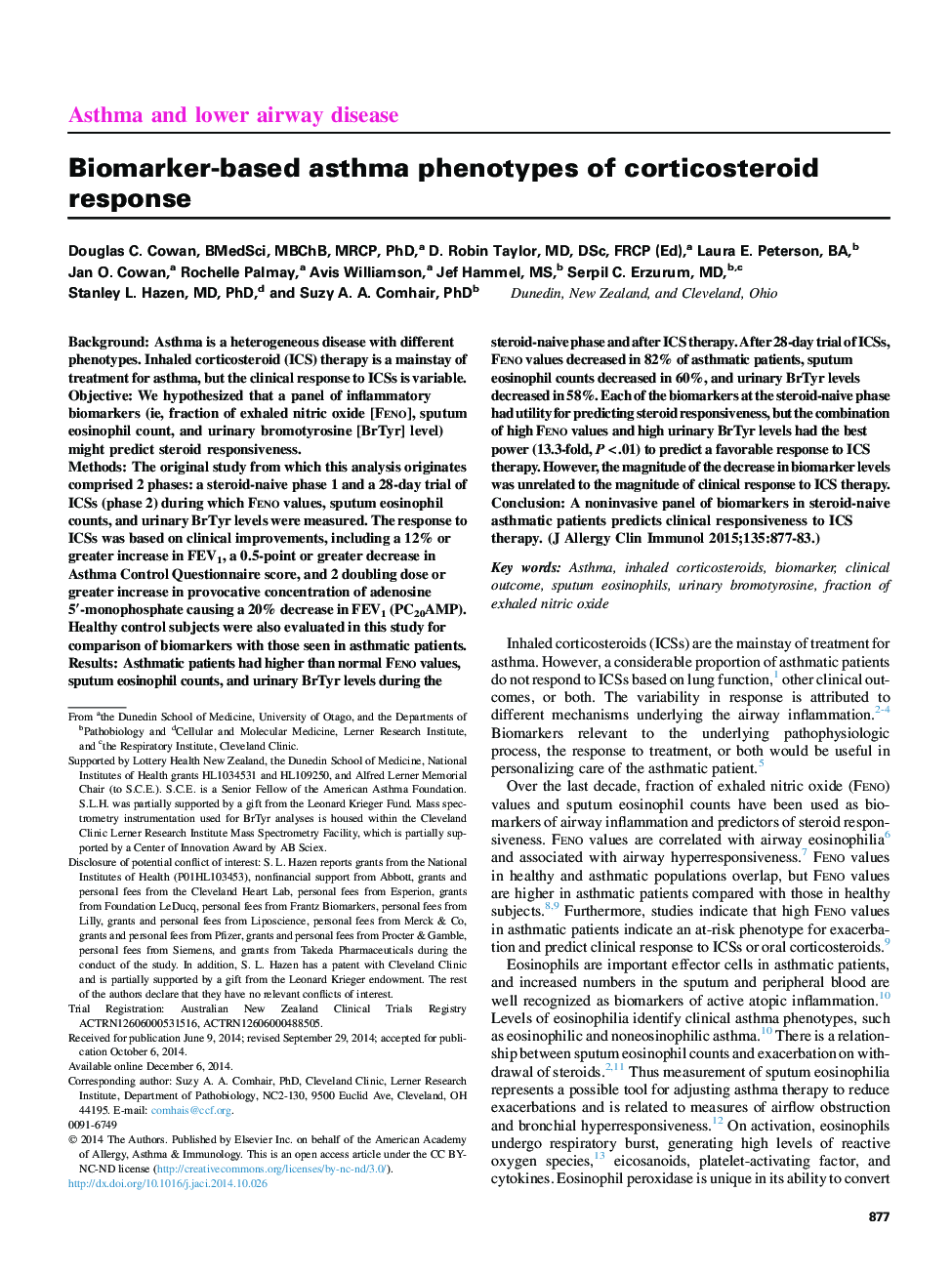| Article ID | Journal | Published Year | Pages | File Type |
|---|---|---|---|---|
| 6064058 | Journal of Allergy and Clinical Immunology | 2015 | 8 Pages |
BackgroundAsthma is a heterogeneous disease with different phenotypes. Inhaled corticosteroid (ICS) therapy is a mainstay of treatment for asthma, but the clinical response to ICSs is variable.ObjectiveWe hypothesized that a panel of inflammatory biomarkers (ie, fraction of exhaled nitric oxide [Feno], sputum eosinophil count, and urinary bromotyrosine [BrTyr] level) might predict steroid responsiveness.MethodsThe original study from which this analysis originates comprised 2 phases: a steroid-naive phase 1 and a 28-day trial of ICSs (phase 2) during which Feno values, sputum eosinophil counts, and urinary BrTyr levels were measured. The response to ICSs was based on clinical improvements, including a 12% or greater increase in FEV1, a 0.5-point or greater decrease in Asthma Control Questionnaire score, and 2 doubling dose or greater increase in provocative concentration of adenosine 5â²-monophosphate causing a 20% decrease in FEV1 (PC20AMP). Healthy control subjects were also evaluated in this study for comparison of biomarkers with those seen in asthmatic patients.ResultsAsthmatic patients had higher than normal Feno values, sputum eosinophil counts, and urinary BrTyr levels during the steroid-naive phase and after ICS therapy. After 28-day trial of ICSs, Feno values decreased in 82% of asthmatic patients, sputum eosinophil counts decreased in 60%, and urinary BrTyr levels decreased in 58%. Each of the biomarkers at the steroid-naive phase had utility for predicting steroid responsiveness, but the combination of high Feno values and high urinary BrTyr levels had the best power (13.3-fold, PÂ < .01) to predict a favorable response to ICS therapy. However, the magnitude of the decrease in biomarker levels was unrelated to the magnitude of clinical response to ICS therapy.ConclusionA noninvasive panel of biomarkers in steroid-naive asthmatic patients predicts clinical responsiveness to ICS therapy.
